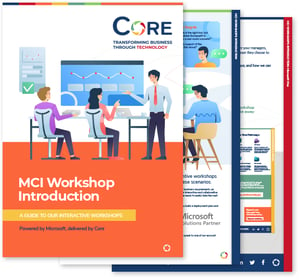This article has been written by David Jennaway, a Microsoft Business Solutions MVP who has worked in the CRM arena for over 12 years. Although David’s primary experience is with Microsoft Dynamics CRM, this article is written as a fair comparison between the two market-leading products – Microsoft Dynamics CRM, and Salesforce.
A note on timing; this article was written shortly before the availability of Dynamics 365, scheduled for November 1st. Where information is known and publically available for Dynamics 365, this has been included in the article. We have retained ‘Dynamics CRM’ as the product name to reflect the current functionality, and use ‘Dynamics 365’ only where there are known changes with Dynamics 365. We intend to update this article when more information is publicly available about Dynamics 365, from November 1st 2016.
| Area | Dynamics CRM | Salesforce |
| Functionality - Sales | Dynamics CRM provides a comprehensive set of Sales functionality out-of-the-box. With CRM 2015, the functionality around the product catalog was extended considerably, although this requires good understanding to utilise fully. Dynamics CRM uses the integration with Microsoft Word and Excel to generate quote documents from templates. This gives a lot of flexibility, though at the slight cost of a little setup time. The OOB sales reporting is reasonable, but can be easily enhanced with system or user-defined reports or dashboards. Goals can be defined to track sales against targets |
Salesforce also provides a comprehensive set of Sales functionality out-of-the-box, which covers essentially the same scope as does Dynamics CRM. Salesforce allows quick creation of quote templates based on a standard template, but this is not very customisable. An alternative is to purchase one of the quote tools from AppExchange for more flexible document generation.The OOB sales reporting is generally a little better than that for Dynamics CRM. Salesforce provides 2 options for forecasting (customisable and collaborative), and you must choose between them |
| Functionality – Marketing | Dynamics CRM has good functionality for managing and tracking campaigns within CRM, though you do need to choose between tools for direct email marketing. There are 3 options:
|
Salesforce provides marketing functionality through its acquisition of ExactTarget, which is now known as MarketingCloud. This provides greater out-of-the-box functionality than does Dynamics CRM (especially around direct email marketing), though broadly on a par with that provided by Dynamics CRM in conjunction with either MDM or one of the 3rd party extensions |
| Functionality – Service | Dynamics CRM has had several recent enhancements to the service functionality. These include an improved model for managing SLAs and Entitlements within cases and contracts, and a Field Service module through the acquisition of FieldOne in late 2015. There is also a Project Service module for managing professional services. Case escalation and routing is done primarily through workflow rules, which need to be created as part of the implementation The Dynamics CRM product suite also includes the Unified Service Desk (USD) product, which is aimed more for large-scale customer self-service via portals. This is a powerful product, but requires significant setup time, and has limited integration with the rest of CRM. Dynamics CRM also has a recent new user-interface (the Interactive Service Hub), which is optimised for users who primarily work with case management |
Salesforce provides similar service functionality to Dynamics CRM, and also includes a live chat facility. Field service functionality can be implemented through 3rd party tools in the AppExchange. The routing and escalation rules can be easily setup in Salesforce, with a little less knowledge required than for the equivalent workflows in Dynamics CRM. Salesforce provides the facility to define Consoles to optimise case management handling. These are currently more flexible and configurable than the CRM Interactive Service Hub |
| Third-party extensions and add-ons | This is an area where Dynamics CRM has traditionally been relatively weak. There was a Microsoft Dynamics Marketplace where you can find 3rd party extensions, and there are a reasonable number of extensions, but significantly fewer than there are for Salesforce. However, Microsoft have essentially relaunched this as AppSource with Dynamics 365, and do appear to be putting in more thought and investment than was previously the cases, so the gap to SalesForce may shrink in the coming months. There are a few major horizontal extensions, such as for marketing (see below), and some significant vertical extensions, but the overall coverage is not that wide. There are, however, significant numbers of implementation partners who offer some form of accelerator or framework for particular verticals. These are not typically sold as standalone extensions, but rather form a basis for a customised implementation, and these can form a very effective way to combine existing vertical-specific solutions with customisations specific to your implementation |
The Salesforce AppExchange is a well-established and well-maintained area to search amongst a wide range of horizontal and vertical Apps for Salesforce. There are significantly more 3rd party Apps for Salesforce than the equivalent for Dynamics CRM. The Salesforce model aims to allow you to implement a workable system using a combination of the OOB product, suitable 3rd party Apps and minimal specific customisation. You are much more likely to achieve this with Salesforce than with Dynamics CRM; however the Dynamics CRM model is aimed at getting a closer fit with partner-assisted customisation, often based on accelerators |
| Deployment Options | Dynamics CRM has 3 deployment options:
The functionality provided for each of these options is fundamentally the same, although new features are often released first in CRM Online, and the On Premise (and some Partner-hosted deployments) allow access to the CRM SQL Database and SQL Reporting Services |
Salesforce is only available in the cloud, in the SalesForce data centre in North America |
| Integration – Office applications | Dynamics CRM integrates well with Microsoft Office (v 2010 and onwards). This includes:
Dynamics CRM Online is also tightly integrated with Office365, sharing licensing and authentication |
Salesforce provides reasonable integration with Microsoft Outlook. The Microsoft Office team have historically provided assistance with this integration, though it is not as comprehensive as the Office integration for Dynamics CRM |
| Integration – Other Systems | Dynamics CRM allows programmatic access to all data and functionality via a web service API, which allows relatively easy integration with other systems There are several third party tools that provide general connectors to CRM – these include standalone tools such as Scribe, and extensions within SQL Server Integration Services (SSIS) There are also some specific end-to-end connectors that link CRM with other specific applications, although most of these are restricted to the OOB schema If Dynamics CRM is deployed OnPremise (and in some partner-hosted deployments), you can also read data directly from the SQL database in a supported manner, which applies CRM user permissions to all access |
Salesforce provides a web service API, though API access is an additional cost. There are a similar number of third party tools that connect to Salesforce; again these include general connectors and some specific end-to-end connectors. There is no mechanism to access Salesforce data via SQL tools |
| Mobile Support | For a few years, Dynamics CRM lagged behind with the mobile clients, but since CRM 2016 it now has good support and capability across mobile clients. This includes a mobile client that can be easily customised in the same way as the main Dynamics CRM application, and support for development of bespoke mobile apps | Salesforce traditionally led on this area with a good mobile client, but now the two products are more equal in this area. Again, Salesforce has a mobile client that is easily customisable, and supports the development of bespoke mobile apps. One aspect in which Salesforce is ahead is that there are more 3rd party apps available via AppExchange |
| License Costs | Although the license models are different, and you can’t always make direct comparisons, in almost all cases Dynamics CRM has cheaper license costs. Dynamics CRM has different client access license (CAL) levels (Basic, Essential and Professional), though in practise almost all users require the Professional License, as the other licenses are primarily for heavily customised applications that use little OOB CRM functionality. However, the Professional CAL includes all CRM functionality (i.e. all modules), and there are no additional costs for specific functionality or services (other than the companion products USD and Microsoft Social Engagement (MSE)). For comparative purposes, the CRM Online Sales Productivity license includes the CRM Professional CAL and Office 365 Enterprise, and costs £53 per user per month. Note that the Dynamics CRM licensing will change with Dynamics 365 from Nov 1st 2016, which is likely to affect these numbers; we’ll update this article when all the licensing details have been released |
Salesforce has several license levels, with a wider spread of functionality provided by each. However, much useful functionality does require one of the higher license levels. Each module (sales, service and marketing requires a separate license), so if a user requires functionality from more than one module, the cost is significantly higher. For comparative purposes, the Sales and Service modules each cost £60 per user per month for the Professional License, or £120 per user per month for the Enterprise License, and there is also a £240 per user per month Unlimited License |
For more information on this or to speak to a consultant please contact us.





